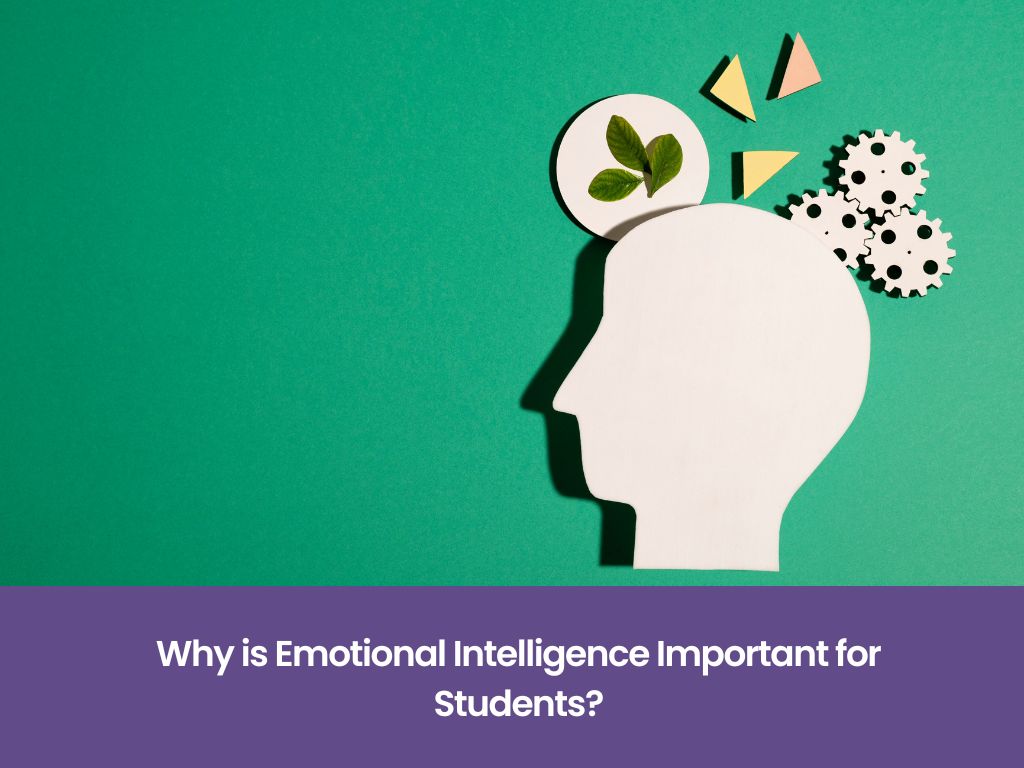Why Emotional Intelligence Matters for Students' Growth
posted on Jun 17, 2025
Discover how emotional intelligence boosts academic success, builds confidence, and prepares students for healthier relationships and lifelong achievement.

Introduction
In today's academic world, success is often measured by grades, ranks, and test results. But while these markers are important, they only tell part of the story. What truly shapes a student's ability to thrive in school, career, and life is their capacity to understand and manage emotions — their own and others’. This quality is known as Emotional Intelligence (EI).
Unlike IQ, which deals with logical reasoning and cognitive ability, emotional intelligence focuses on emotional awareness, self-regulation, empathy, and interpersonal skills. Developing EI is as important as excelling in academics, especially in today’s high-pressure, socially complex environment. For students, it means more than just “being emotional”; it means being emotionally smart.
What is Emotional Intelligence?
Emotional Intelligence is the ability to recognize, understand, and manage emotions effectively. Daniel Goleman, a pioneer in EI research, outlines five key components of emotional intelligence:
- Self-Awareness – Recognizing and understanding one’s emotions.
- Self-Regulation – Managing emotions in healthy and constructive ways.
- Motivation – Channeling emotions to stay focused and productive.
- Empathy – Sensing and understanding others' emotions.
- Social Skills – Building and maintaining healthy relationships.
These skills help students become not only better learners but also more compassionate and confident individuals.
Why is Emotional Intelligence Essential for Students?
1. Enhances Academic Performance
Studies have consistently shown a strong link between emotional intelligence and academic achievement. A student with higher EI can manage exam anxiety, stay motivated, and overcome setbacks with greater ease. They tend to be better at focusing, collaborating in group activities, and participating in class discussions—all of which contribute to improved academic outcomes.
2. Strengthens Peer Relationships
School life involves constant interaction—with classmates, teachers, and staff. Emotionally intelligent students are better communicators, more empathetic, and more respectful of others’ opinions and emotions. This reduces conflict, promotes inclusivity, and helps foster positive friendships and teamwork.
3. Builds Emotional Resilience
Life isn’t always easy, even for children. Academic pressures, social challenges, and personal insecurities can take a toll on a child’s mental health. Emotional intelligence helps students cope with challenges in a healthy way, teaching them how to regulate emotions, seek help when needed, and bounce back from failure.
4. Boosts Confidence and Self-Esteem
Students who understand and manage their emotions effectively often show higher levels of self-confidence. They are less likely to be overwhelmed by negative thoughts, peer pressure, or criticism. Emotional intelligence allows them to take ownership of their feelings and actions, enabling a stronger and more stable sense of self.
5. Promotes Responsible Decision-Making
Whether it's dealing with academic pressure, peer influence, or conflicts, students with emotional intelligence tend to make better decisions. They are more thoughtful in evaluating consequences, open to feedback, and less impulsive when faced with dilemmas.
Long-Term Benefits Beyond School
1. Leadership Development
Great leaders are emotionally intelligent. They listen, empathize, and inspire. Students who develop these qualities early on are more likely to take on leadership roles in school and continue that trend in professional environments later in life.
2. Career Success
Most employers today value emotional intelligence just as much as technical expertise. The ability to work in teams, adapt to workplace culture, resolve conflicts, and maintain professionalism under pressure are all indicators of EI—and are in high demand across industries.
3. Healthier Adult Relationships
Emotionally intelligent children grow into adults who communicate better, manage stress effectively, and nurture meaningful personal relationships. Whether it’s within families, friendships, or romantic partnerships, emotional intelligence plays a vital role in long-term happiness and connection.
The Role of Schools in Developing EI
Schools are the ideal setting to nurture emotional intelligence from a young age. Through structured programs, everyday interactions, and emotionally supportive environments, institutions can help children develop these essential life skills.
BGS Vijnatham, one of the best school in Noida Extension, exemplifies this approach. The school integrates emotional and social learning into its daily curriculum, ensuring students not only learn subjects but also learn about themselves and others. With a focus on holistic development, the school creates an atmosphere where students feel safe, understood, and empowered.
How Schools Can Integrate EI:
- Incorporate emotional literacy into daily classroom activities.
- Encourage open conversations about feelings.
- Provide mindfulness and meditation sessions.
- Train teachers to model emotional intelligence in behavior and instruction.
- Use group projects and role-playing to build empathy and teamwork.
The Role of Parents in Emotional Development
Parents are a child’s first emotional guides. Their involvement is crucial in helping children understand, express, and manage emotions. Emotional intelligence starts at home and is reinforced at school.
Tips for Parents:
- Be a role model: Children learn by observing how adults handle stress and express emotions.
- Validate feelings: Avoid dismissing your child’s emotions. Instead, help them name and understand what they’re feeling.
- Encourage problem-solving: Ask questions that help children think through solutions instead of giving answers directly.
- Set consistent routines: Stability builds emotional security, especially in younger children.
Schools like BGS Vijnatham, being amongst the top 10 schools in Greater Noida West, also encourage strong parent-school partnerships to align emotional development strategies at home and school.
Conclusion
In a world where technical skills and knowledge are evolving rapidly, emotional intelligence remains a timeless trait that prepares students not just to earn a living—but to live a meaningful life. From improving academic performance to strengthening relationships and building resilience, EI is foundational to a child’s overall development.
By embedding emotional learning into school culture and supporting it at home, we prepare our children to navigate life's complexities with confidence, empathy, and strength. Emotional intelligence is not just an asset; it’s a necessity for future-ready individuals.